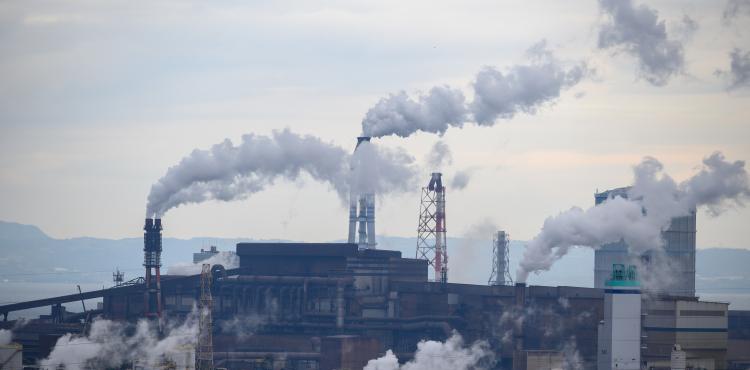
The European Commission has adopted the EU Action Plan: "Eliminating air, water and soil pollution" - one of the main objectives of the European Green Deal and the central theme of this year’s EU Green Week. The plan defines an integrated vision for 2050: a world in which pollution is reduced to levels that are no longer detrimental to human health and natural ecosystems, including measures to achieve that vision. The plan shall combine all relevant EU policies to combat and prevent pollution, with particular attention to how digital solutions can address pollution; it is planned to review the relevant EU legislation in order to identify the remaining gaps in EU legislation and those aspects that need better implementation for the purpose of complying with those legal obligations.
As a means to steer the EU towards the 2050 target, which is a healthy planet for healthy people, the Action Plan sets out key objectives for 2030 aimed at reducing pollution at source compared to the current situation, namely:
- improving air quality to reduce by 55 % the number of premature deaths caused by air pollution;
- improving water quality by reducing waste, plastic waste at sea (by 50 %) and microplastics released into the environment (by 30 %);
- improving soil quality by reducing nutrient losses and the use of chemical pesticides by 50 %;
- reduce by 25 % EU ecosystems where air pollution threatens biodiversity;
- reduce by 30 % the proportion of people suffering from chronic transport noise disturbances and significantly reduce waste generation and by 50 % residual municipal waste.
The plan outlines several flagship initiatives and actions, including:
- further align air quality standards with the latest recommendations of the World Health Organisation;
- review water quality standards, including in EU rivers and seas;
- reduce soil pollution and improve soil remediation;
- review most of the EU’s waste legislation in order to adapt it to the principles of a clean and circular economy;
- promote zero pollution from production and consumption;
- present a framework for assessing the ecological performance of EU regions to promote zero pollution in all regions;
- reduce inequalities affecting health caused by the disproportionate share of harmful health impacts to which the most vulnerable are currently exposed;
- reducing the EU’s external pollution footprint by limiting exports of products and waste which have a harmful and toxic impact in third countries;
- start Living Labs for green digital solutions and zero smart pollution;
- consolidating EU zero pollution knowledge centres and bringing stakeholders together in the zero pollution stakeholder platform;
- strengthen the implementation of zero pollution measures in consultation with environmental and other authorities.
Together with the strategy on chemicals for sustainability adopted last year, the Action Plan translates into action the EU’s objective of zero pollution for a toxic-free environment. This action goes hand in hand with the EU’s objectives of climate neutrality, health, biodiversity and resource efficiency and is based on initiatives in the fields of energy, industry, mobility, food, the circular economy and agriculture.
This year’s EU Green Week, the largest annual environmental policy event that will be held in the period 1-4 June, will allow citizens across the EU to discuss zero pollution topics at the main conference to be held in Brussels, online and at over 600 side events.